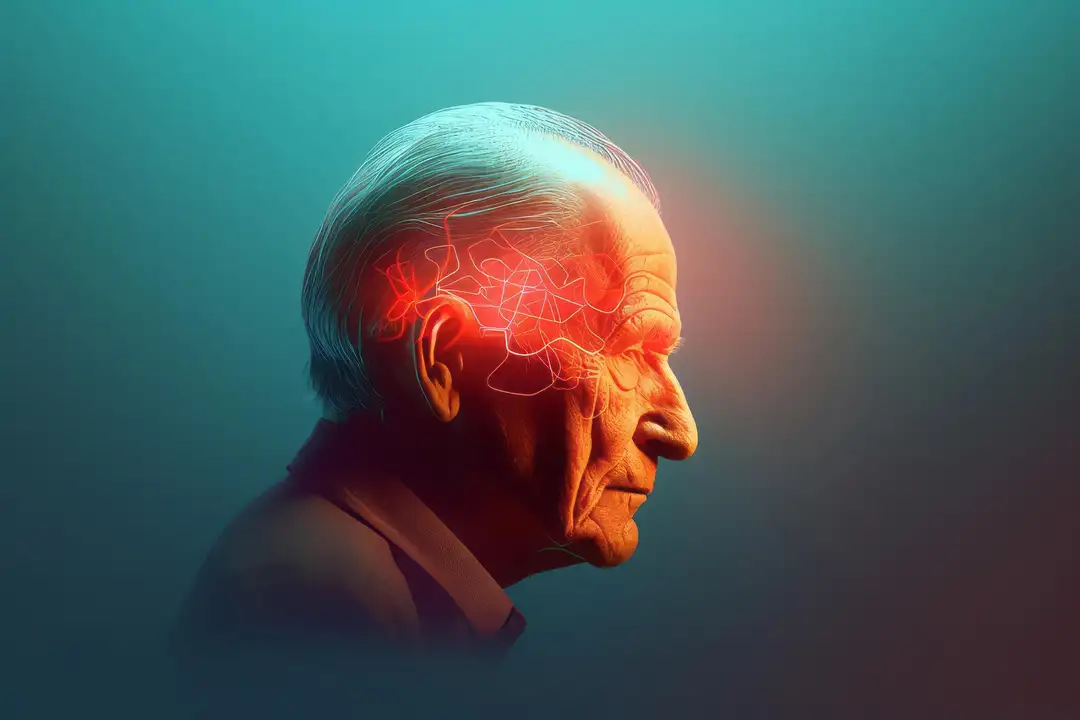
Executive functions are cognitive skills that integrate ideas, movements, and actions, enabling human behavior to adapt to different situations and solve complex problems. They are among the first cognitive functions to decline during normal aging, manifesting as a gradual slowing in working memory, verbal abstraction, calculation, logical reasoning, and inhibitory mechanisms, leading to an increase in incorrect responses.
This study aimed to evaluate the executive functions that decline during the normal aging process according to different age groups in older adults. A total of 182 healthy older adults were assessed using tasks designed to evaluate working memory and inhibitory control, and they were divided into four age groups. The results demonstrated that the likelihood of cognitive decline increases with age. The oldest age group had greater difficulty with sequencing tasks, working memory similarity tasks, and inhibitory control tasks, showing longer response times. Working memory and inhibitory control exhibited normal decline, with more pronounced effects at advanced ages.
INTRODUCTION
Executive functions are cognitive processes that integrate ideas, movements, and actions to solve complex problems and behaviors (Tirapu-Ustárroz & Muñoz-Céspedes, 2005). They allow individuals to adapt to new and complex situations throughout life to achieve specific goals (Rosselli et al., 2008; Lepe-Martínez, 2020).
While various definitions of executive functions exist, most agree that they are crucial for normal behavior and adaptation in constantly changing environments (Lepe-Martínez, 2020). Lezak (1982) first introduced the term executive functions, defining them as the "mental abilities essential for carrying out effective, creative, and socially acceptable behavior" (Fernández et al., 2016, p. 5).
Executive functions regulate basic cognitive skills, including:
· Attention
· Memory
· Perception
· Learning
· Language
· Motor skills
These functions play a key role in goal-directed behavior and problem-solving (Lepe-Martínez, 2020). Although executive functions are not a single unitary function, they describe metacognitive and self-regulatory processes that allow for goal setting, planning, self-regulation, and efficient execution of activities (Aguilar et al., 2014).
Executive Function Decline in Aging
As age progresses, some cognitive abilities increase, while others decline. Executive functions are among the first to deteriorate during normal aging (Botia et al., 2015; Gamba et al., 2017). Some diminish or even disappear at advanced ages, particularly those linked to:
· Planning
· Flexibility
· Monitoring
· Inhibition
· Self-regulation
· Visuospatial skills (Basuela, 2007)
This decline is associated with:
· Slower information processing
· Reduced mental flexibility
· Decreased precision and slower transitions between tasks
· Impaired practical reasoning for complex tasks
· Reduced logical problem-solving due to disorganization and redundancy in thinking (Lepe-Martínez, 2020).
Aging is a natural process, but individual differences arise due to biopsychosocial factors, socioeconomic status, and lifestyle. After age 60, it is expected that executive functions, particularly inhibitory mechanisms, working memory, problem-solving, and information processing speed, will decline (Amador et al., 2020).
Older adults—particularly those over 70 years—exhibit:
· Slower response times
· Increased perseverative errors in cognitive tasks
· More difficulty in tasks requiring mental flexibility and inhibitory control (Buller, 2010)
These difficulties can hinder active and healthy aging (Aceiro et al., 2018; Bossio & Justel, 2023).
Influence of Education on Executive Function Decline
Aging is not the only factor affecting executive function decline—low education levels and illiteracy also play a significant role in reducing:
· Verbal working memory
· Verbal abstraction
· Semantic memory
· Calculation abilities
· Logical reasoning
· Inhibitory mechanisms (Soto-Añari & Cáceres-Luna, 2012)
However, a higher level of education has been associated with better executive function performance, including:
· Improved working memory and phonological fluency
· Enhanced problem-solving abilities
· Stronger constructive skills and motor dexterity
· Better numerical skills (Ardila, 2012)
Education can help compensate for age-related cognitive decline, allowing older adults to maintain executive function abilities longer.
Specific Executive Functions Affected by Aging
Studies have identified several executive functions that decline with normal aging, including:
· Working memory (Caplan, 1999; Flores-Lázaro & Ostrosky-Shejet, 2012)
· Abstraction capacity (Gramunt-Fombuena et al., 2018)
· Inhibitory control, mental flexibility, decision-making, and problem-solving (Miller & Cohen, 2001)
· Arithmetic skills and similarity tasks, which decline after age 70 (Gramunt-Fombuena, 2018; Segura-Cardona et al., 2018)
Inhibitory Control Decline
Inhibitory control refers to the ability to suppress automatic responses and delay impulsive reactions. With aging, more errors occur in inhibition tasks (Hasher & Zacks, 1988).
Older adults may show deficits in inhibitory control, which are associated with age-related cognitive slowing (De Bruin & Della, 2018). The complexity of evaluation tasks also affects performance, suggesting that testing methods should be adapted for older populations.
Motor Function Decline
Studies indicate that executive function deterioration during normal aging is evident in motor control tasks—older adults tend to show greater deficits in motor sequence tasks (Botia et al., 2015).
Additionally, education level significantly influences executive function performance—individuals with higher education tend to perform better on executive function tasks (Soto-Añari & Cáceres-Luna, 2012).
Study Objective
This research aims to evaluate the normal cognitive decline of executive functions specifically affected by the aging process in different age groups of older adults. The study utilized psychometrically and methodologically appropriate tasks to assess cognitive changes.
Authors:
María Elena Flores-Villavicencio – Ph.D. in Health Psychology
· Institutional Affiliation: Research Professor, Department of Social Sciences, Health Sciences University Center, University of Guadalajara, Jalisco, Mexico
Melina Rodríguez-Díaz – Ph.D. in Psychology
· Institutional Affiliation: Professor, Research Center for Human Development and Aging, Health Sciences Division, Tonalá University Center, University of Guadalajara, Jalisco, Mexico
José Raúl Robles Bañuelos – M.D., Ph.D. in Medicine
· Institutional Affiliation: Resident, Family Medicine Specialty, Mexican Institute of Social Security (IMSS), Guadalajara, Jalisco, Mexico
Sources
- https://revistas.ucr.ac.cr/index.php/gerontologia/article/view/63902/63279




